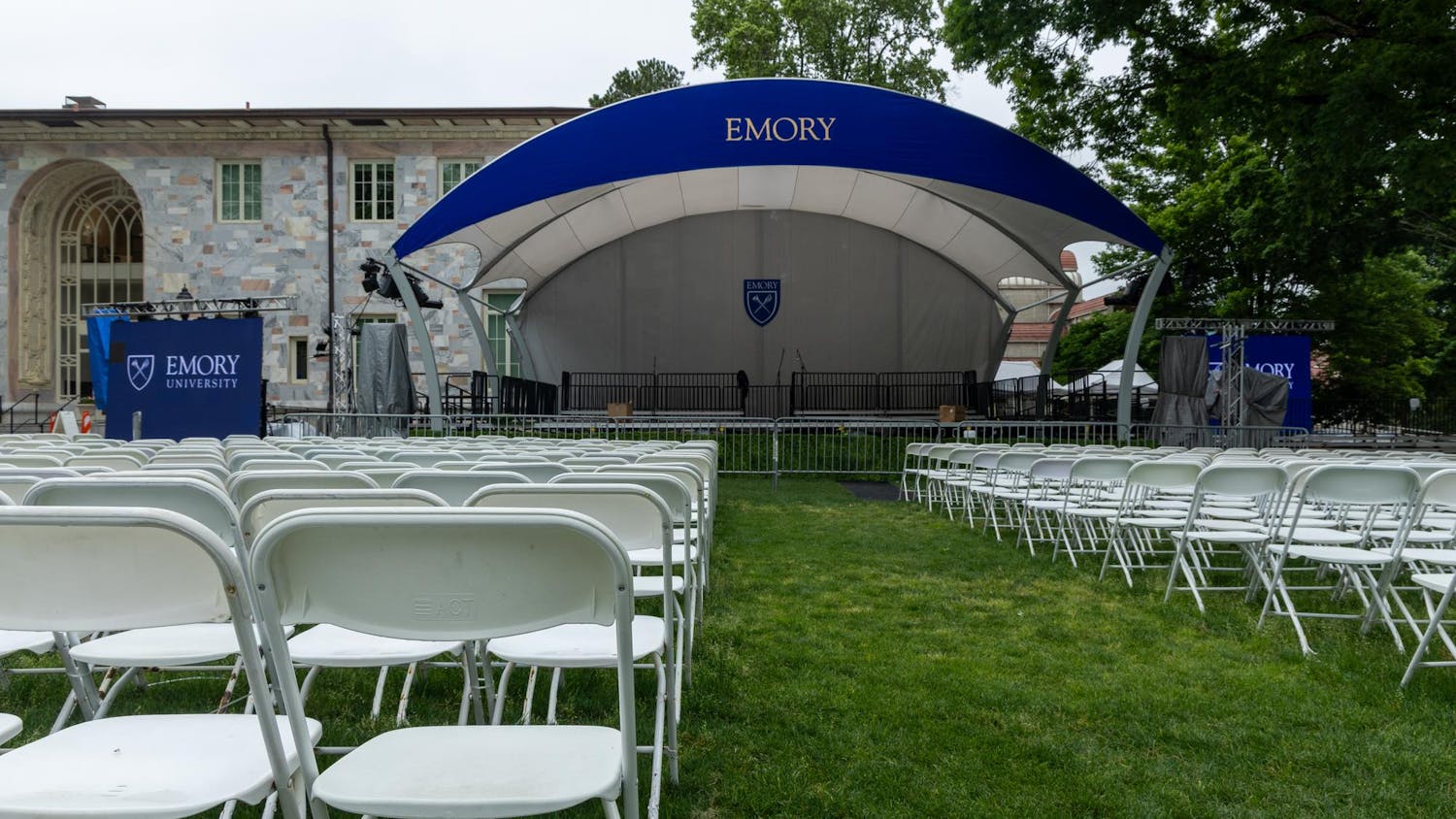Charles Howard Candler Professor of African American Studies Carol Anderson answered student questions about voter suppression in a Q&A session hosted by Fair Fight U Emory and Young Democrats of Emory on March 22.
Since writing her book “White Rage,” Anderson has sought to raise awareness about “bureaucratic violence,” the laws and policies that suppress voting rights.
“I needed to be able to make legible fully how the array of voter suppression techniques and policies work so that we were aware of how imperilled our democracy was by these policies that systematically set out to stop American citizens from voting,” she said.

Anderson emphasized what she calls “the big lie,” which she says all widespread voter suppression laws are predicated upon. Legislators who enact these suppressive bills claim they are addressing their constituents’ concerns about elections lacking integrity but these fears are unbased, Anderson said. She referenced a study conducted by Loyola Marymount University (Calif.) Professor of Law Justin Levitt, who found that out of the one billion votes cast in the U.S. from 2000 to 2014, there were only 31 cases of voter impersonation fraud.
Since Georgia swung blue in both the presidential election and senate runoffs, the state legislature has made headlines for its efforts to suppress the vote, which many are calling “Jim Crow 2.0.”
“We’ve seen several bills coming through from the Republicans in the state legislature to figure out how we stop what happened in 2020,” Anderson noted.
Anderson broke down SB 202, which Gov. Brian Kemp signed into law March 25, calling it a “multi-pronged attack” from the state legislature. Under the law, it is now a felony for anyone working at a polling site to provide water, food, chairs or aid to voters in line. The bill does not aim to lessen the nine-hour lines seen across the state.
The bill prevents private entities from providing spaces to vote, eliminates external dropboxes and gets rid of consent decrees, leaving voters with no opportunity to cure their ballots. SB 202 also gives the state legislature the power to take over county election boards under certain circumstances to certify elections.
“This bill is foul and nasty,” Anderson said. “It is a way for Georgia to not replicate what happened in 2020.”
However, Georgia’s effort to suppress the vote is not isolated. Across the country, bills in 43 state legislatures aim to take away their residents’ voices, using voter fraud as a basis for their efforts, Anderson noted. There have been over 250 voter suppression bills proposed across these 43 states. For example, in Arizona, the state legislature has proposed a bill that allows them to override the popular vote and give the electoral college votes to their desired candidate.
In light of these states’ efforts, two bills fighting against voter suppression are currently moving through the U.S. Congress. According to Anderson, the For the People Act, is “about ethics, it's about cleaning up democracy, it's about creating access.”
The For the People Act, proposed by U.S. Rep. John Sarbanes (D-Md.), guarantees two weeks of early voting — affording those who cannot take a Tuesday off from work the opportunity to vote — and automatic voter registration.
“You have to opt out of voting instead of opting in,” Anderson explained. “What that does is it increases the electorate, it increases the diversity of the electorate and it generally increases the participation of the electorate.”
The second bill is the John Lewis Voting Rights Advancement Act, which responds to the Supreme Court’s gutting the Voting Rights Act in 2013. This bill creates “national standards that are enforceable for our elections in order to override states’ assault on the right to vote,” Anderson said. This nation-wide monitoring of discriminatory voting laws fights against legislatures in states like Georgia.
Anderson called on students to take action and engage since young people have a powerful influence as the largest demographic in the U.S. She urged citizens to call their state legislatures and hold their elected officials accountable, as well as educate their family and friends about what is at stake as the right to vote is being challenged.
“The price of liberty is eternal vigilance,” Anderson said. “Pay attention to what’s happening in your state legislature, pay attention to what’s happening in congress with these bills and engage. This is a democracy worth fighting for.”





